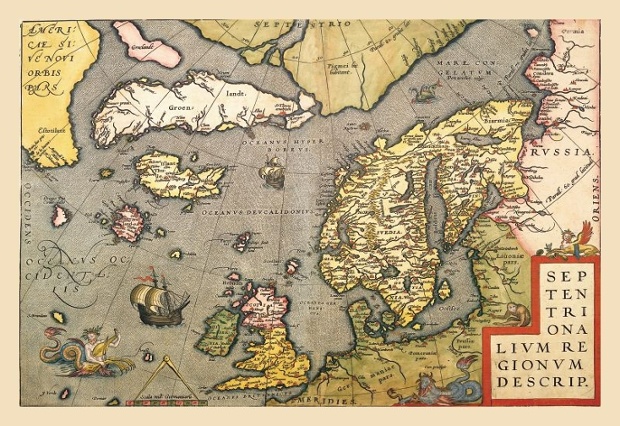
Throughout this history, we see a continual see-saw between trade and war.

This was a complex world of many cultures. Pye’s rich details and stories create a fascinating look into numerous civilizations as they developed along the North Sea. Pye dives into many fascinating threads of economic and cultural development from the time of Charlemagne onward: the development of books, education, and literacy how settlements were created and trade conducted the writing of the law fashion and morals currency and money science and how love, sex, and marriage were conducted.

What were the economic and trade models that built this area of the world? Why were the Frisians so astute at creating and managing currencies? How was the Hanseatic League formed, and what were the reasons for its success? Why did it diminish as nation-states developed? I purchased The Edge of the World along with a large selection of books about the Frisian people, the Hanseatic League, and the business history of the Dutch. The Wall Street Journal described The Edge of the World as “beautifully written and thoroughly researched.” The book was published in 2015 to accolades from establishment sources, including being declared one of the year’s 100 notable books by the New York Times. This included the Frisians, Dutch, Vikings, Danes, Finns, Germans, English, and Scots.


The Edge of the World: A Cultural History of the North Sea and the Transformation of Europe by journalist Michael Pye is a history of the people and cultures who traded across the North Sea and into the trade routes of Europe, the Middle East, and Asia during the Middle Ages. It helped to make the state a physical reality, and gave it ambitions.” ~ Michael Pye, The Edge of the World Plague enforced frontiers that were otherwise wonderfully insecure, and made our movements and travels conditional. We’ve seen how plague became the reason, just like terrorism today, for social regulation, for saying how children must behave, for taking a worker’s right to choose what work he wanted, for deciding which of the poor are worthy of help and which are just wastrels. “Plague justified the rules that kept a person in her place.


 0 kommentar(er)
0 kommentar(er)
